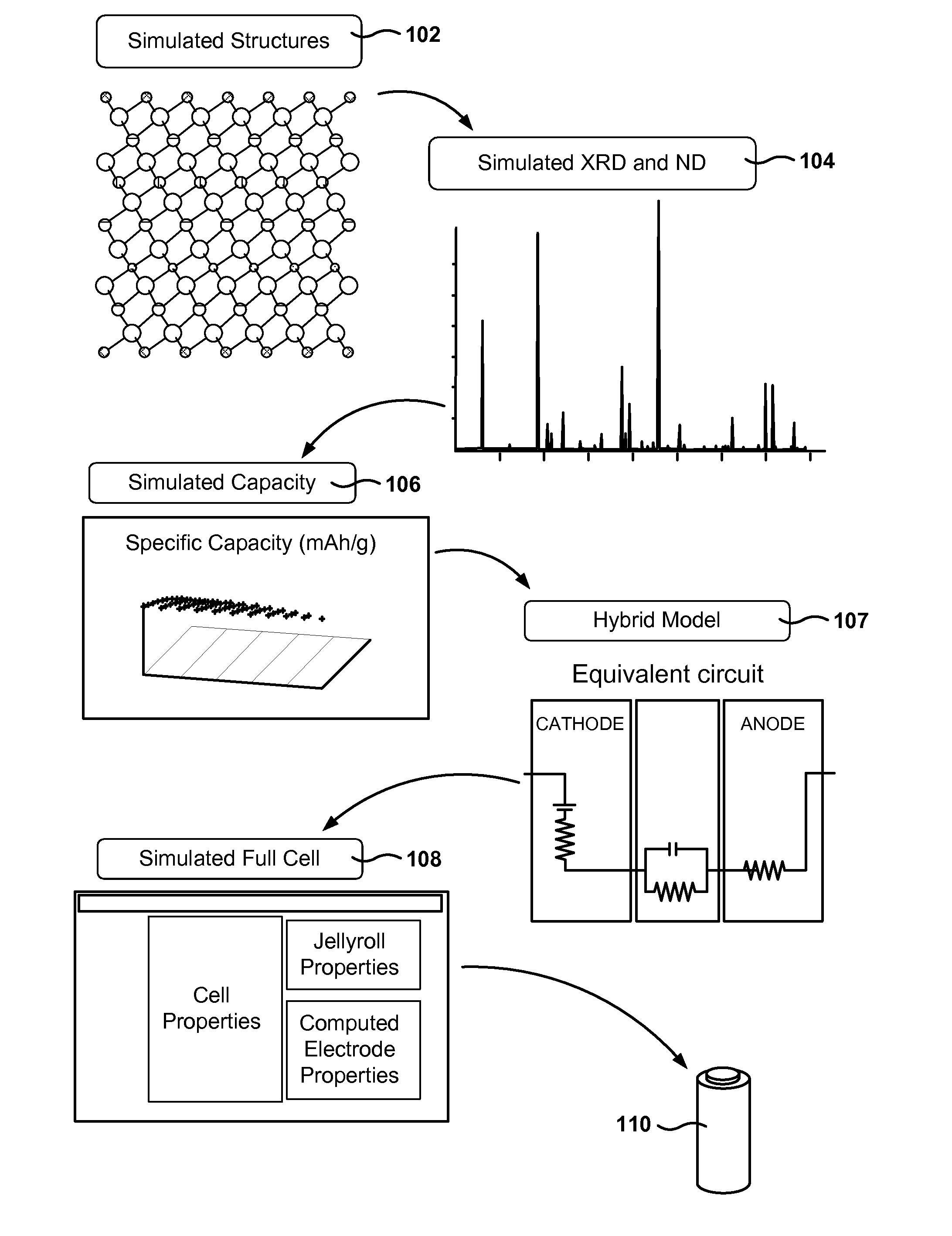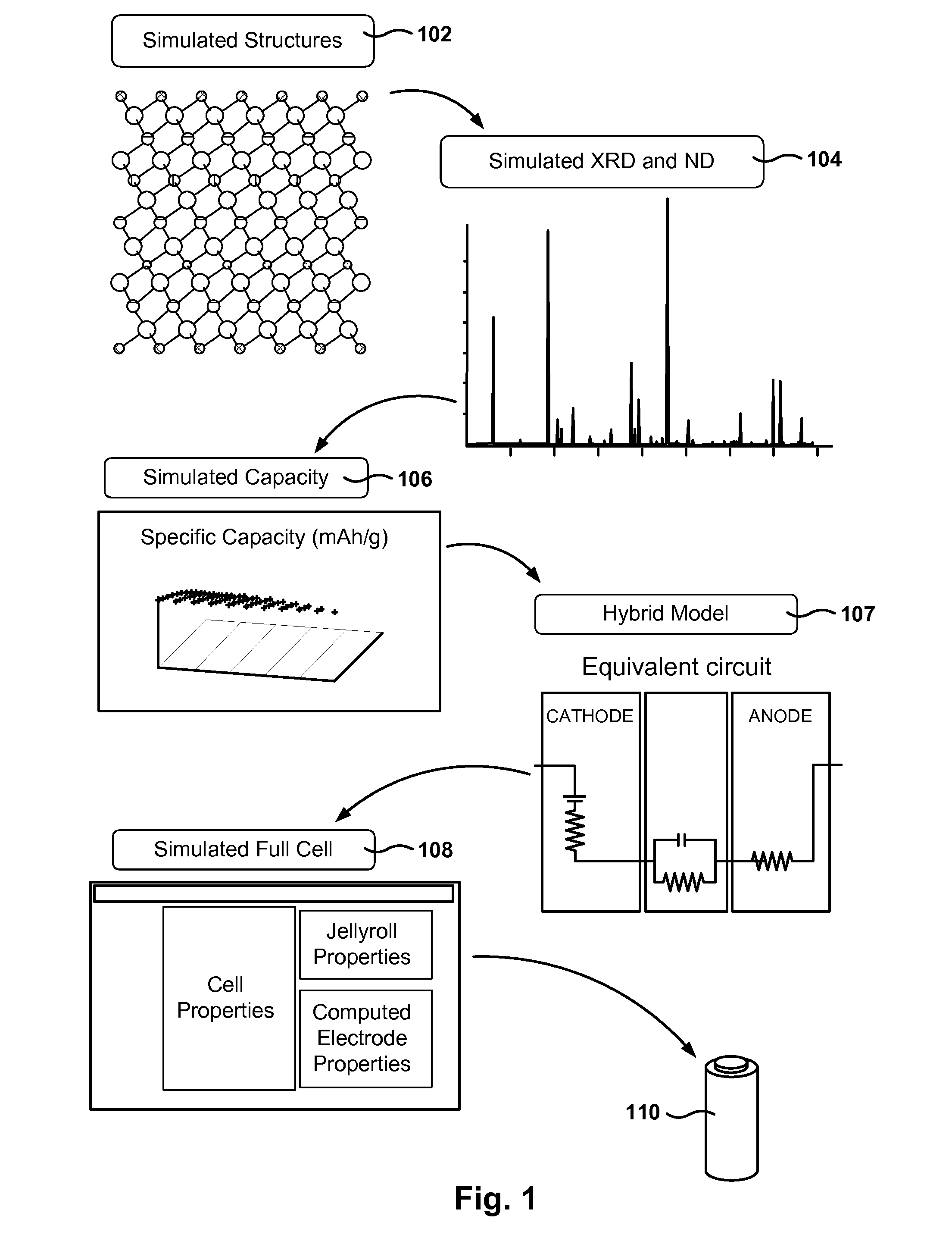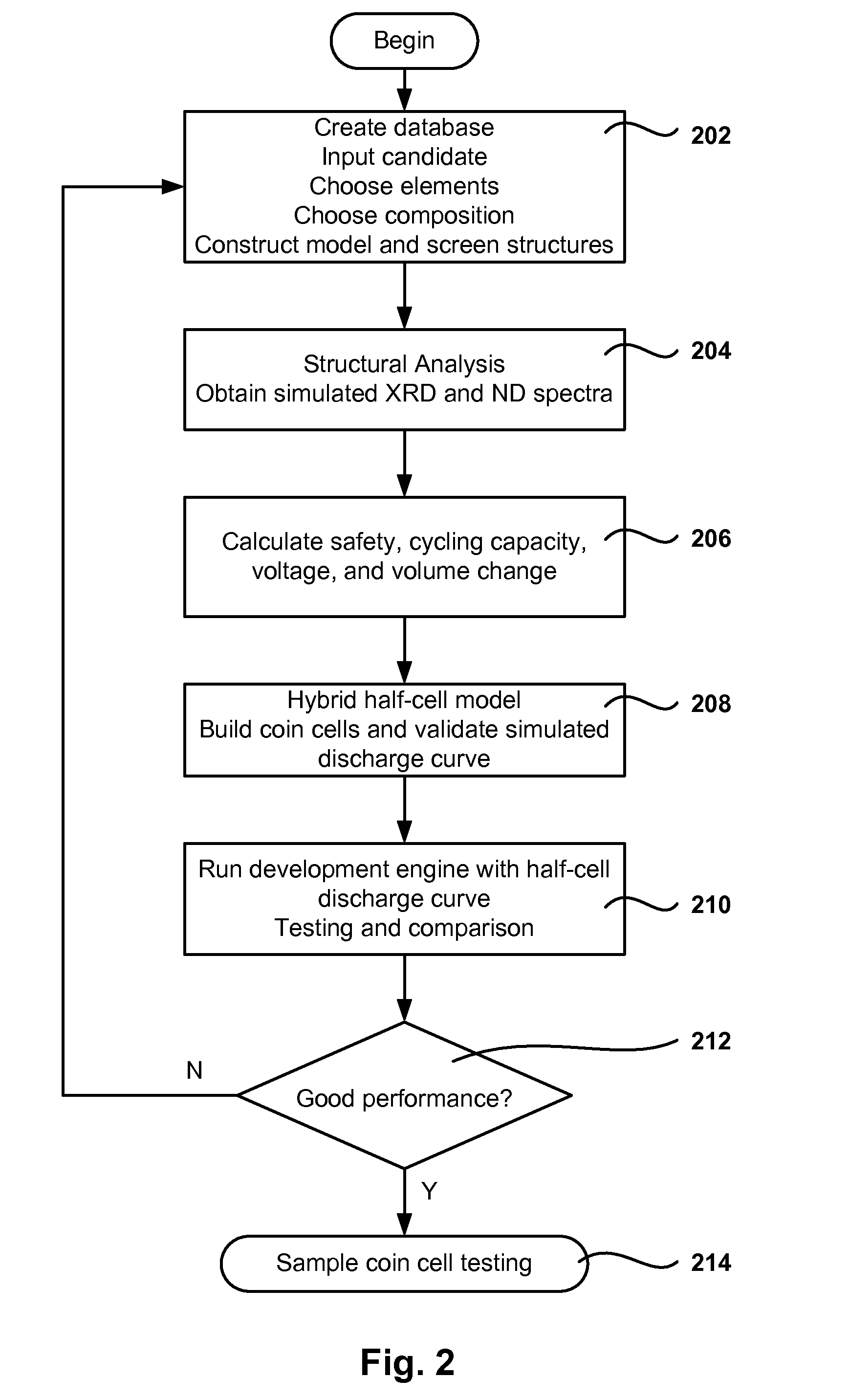Li-Ion Battery Capacity and Voltage Prediction Using Quantum Simulations
a quantum simulation and battery technology, applied in chemical property prediction, instruments, electrochemical generators, etc., can solve the problems of low charge and discharge rate capability, time-consuming and expensive, and the high cost of cobalt, and achieve the effect of capacity of lithium batteries
- Summary
- Abstract
- Description
- Claims
- Application Information
AI Technical Summary
Benefits of technology
Problems solved by technology
Method used
Image
Examples
Embodiment Construction
[0035]Embodiments of the invention provide methods, systems, and computer programs for a fast and high-throughput design engine platform for the selection of quantum simulated Li-ion battery materials that conform to requirements of structure, safety, cycling ability, capacity, and power variation. The determination of the materials is based on quantum simulations where a database of modular elements for the simulations is kept for fast search and selection of the best structures for Li-ion batteries. It will be obvious, however, to one skilled in the art, that the present invention may be practiced without some or all of these specific details. In other instances, well known process operations have not been described in detail in order not to unnecessarily obscure the present invention.
[0036]In one embodiment, the system creates all possible compositionally different structures of the layered oxide, spinel, and olivine-type electrode materials, as well as their solid solutions and ...
PUM
 Login to View More
Login to View More Abstract
Description
Claims
Application Information
 Login to View More
Login to View More - R&D
- Intellectual Property
- Life Sciences
- Materials
- Tech Scout
- Unparalleled Data Quality
- Higher Quality Content
- 60% Fewer Hallucinations
Browse by: Latest US Patents, China's latest patents, Technical Efficacy Thesaurus, Application Domain, Technology Topic, Popular Technical Reports.
© 2025 PatSnap. All rights reserved.Legal|Privacy policy|Modern Slavery Act Transparency Statement|Sitemap|About US| Contact US: help@patsnap.com



